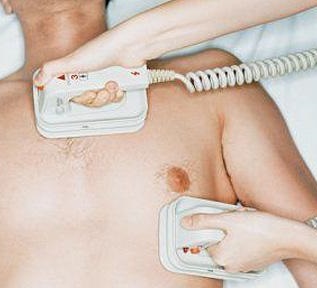New method cuts to the heart of emergency concerns
 A fast-track diagnostic tool is helping decongest some Queensland emergency departments.
A fast-track diagnostic tool is helping decongest some Queensland emergency departments.
Cardiology Professor Will Parsonage from the University of Queensland has been conducting trials on new diagnostic methods for heart conditions, which can more rapidly rule out the risk of heart attack in some cases.
With more than 7 millions Australians rushed to hospital on the fear of heart attack every year, cutting down the time it takes to confirm or deny the risk would be extremely useful.
The traditional method has used hours of testing and waiting, sometimes overnight, just to properly gauge the risk.
The new approach by the researchers from Queensland has been able to rule out a heart attack with a very high degree of accuracy. It is also easier to tell the level of risk for other adverse outcomes too.
The method does not require the purchase of any high-tech equipment, it consists of a new framework for doctors’ assessments.
“Really just using all the same tools that we had before, but compressing the timeframe, putting it all together in a different way, and that way we can, as I say, very accurately, very close to 100 per cent accuracy, identify this group of people who were at very low risk,” Prof Parsonage explained.
He says one in five cases so far has been fast-tracked.
It has been providing much faster relief for patients, who no longer have to wait agonising periods just to have their fears confirmed or denied.
The new approach has been so successful in early trials that the Queensland government has decided to take it on more broadly.
It will now spend $1 million to roll-out the program across the state, aiming for savings up to $10 million per year.
The research will also be taken into account by The Heart Foundation in its review of nationwide guidelines for coronary care.








 Print
Print